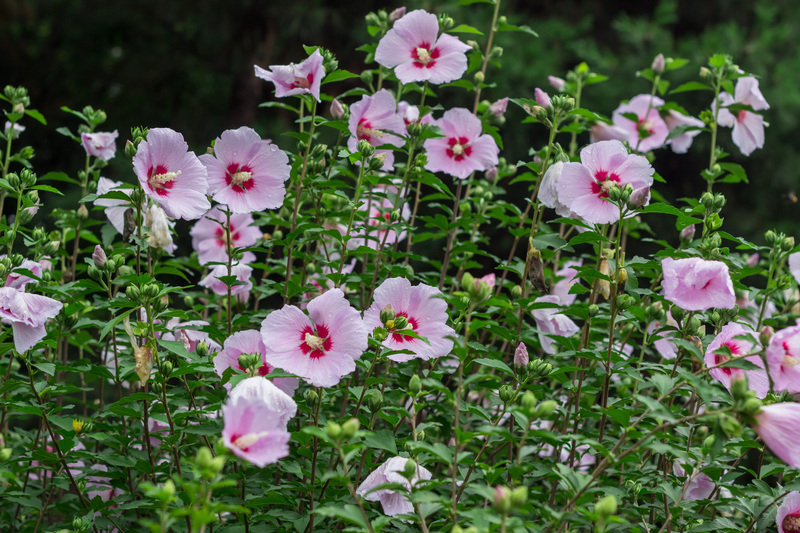Thriving Soil from Waste: An Organic Renaissance
Posted on 05/06/2025
Thriving Soil from Waste: An Organic Renaissance
The concept of thriving soil from waste is gaining momentum as humanity seeks sustainable ways to regenerate the Earth's natural resources. This shift towards an organic renaissance not only revitalizes our farmlands, backyards, and green spaces but also helps address the mounting problem of waste management. Through innovative strategies and time-honored traditions, waste materials are transformed into rich, living soils teeming with nutrients and microbial life. In this comprehensive article, we explore how waste can become the womb of agricultural prosperity and ecological restoration.

Understanding Soil: The Backbone of Life
Soil is often underestimated, yet it is the foundation of terrestrial ecosystems. It supports plant growth, houses billions of microorganisms, and plays a vital role in water filtration, carbon sequestration, and nutrient cycling.
- Healthy soil is vital for robust food systems.
- It stores and purifies water, reducing drought and flooding risks.
- Soil is a major carbon sink, helping mitigate climate change.
- Biodiversity belowground is often more complex than what we see above.
However, centuries of industrial agriculture, pollution, and disregard have depleted soils around the globe. The answer may lie in regenerating soil from organic waste.
What Constitutes Organic Waste?
Organic waste refers to any biodegradable material originating from plants or animals. These wastes, if managed correctly, are the starting point for a regenerative agricultural revolution.
- Food scraps from kitchens and restaurants
- Yard clippings and leaves
- Livestock manure
- Crop residues and husks
- Woody debris
When these materials end up in landfills, they decompose anaerobically, releasing methane--a powerful greenhouse gas. When redirected to composting, vermiculture, or fermentation, they instead become the building blocks of fertile, living soil.
The Science Behind Soil Generation from Waste
Decomposition: Nature's Alchemy
At its core, the transformation of waste into thriving soil relies on biological decomposition. Microorganisms--bacteria, fungi, and actinomycetes--break down complex organics into simpler compounds. Larger organisms like earthworms and insects further process the material, creating a fine, crumbly humus rich in nutrients.
Key Processes in Waste-to-Soil Conversion
- Composting: Controlled aerobic decomposition, producing stable humus and natural fertilizer.
- Vermicomposting: Red worms transform kitchen scraps into a nutrient-dense, microbially rich soil amendment.
- Bokashi and Anaerobic Digestion: Fermentation of food waste (using EM, or effective microorganisms), resulting in pre-compost or bio-fertilizer.
- Biochar: Pyrolyzing organic waste into carbon-rich soil enhancer that boosts microbial activity.
All these methods embody the principle of "closing the loop"--returning nutrients back to the earth instead of extracting and discarding.
Benefits of Generating Thriving Soils from Organic Waste
1. Closing Nutrient Cycles
When organic matter is returned to the soil, it replenishes essential nutrients such as nitrogen, phosphorus, potassium, and trace minerals. This leads to:
- Improved crop yields without synthetic inputs
- Resilient soils that retain structure and moisture
- Enhanced biodiversity both above and below ground
2. Climate Change Mitigation
Utilizing waste to regenerate soil helps sequester carbon that would otherwise be released into the atmosphere. Rich organic soils are carbon sinks--they lock away CO2 within stable matter for decades.
- Compost and biochar application reduces greenhouse gas emissions.
- Healthy soils decrease the need for chemical fertilizers, whose production is energy-intensive.
3. Waste Reduction and Circular Economy
Diverting organic waste from landfills lightens the burden on municipal waste systems and lowers environmental hazards. It also supports a circular economy where "waste" becomes a valuable resource.
4. Food Security and Soil Health
The final product of organic waste transformation is a living soil teeming with beneficial organisms. These soils:
- Support healthy, nutrient-dense crops
- Restore degraded lands and ecosystems
- Improve resistance to drought, disease, and erosion
The Methods: From Waste to Thriving Soil
Composting for Soil Renewal
Composting is perhaps the most common method for converting waste to thriving soil. It involves collecting nitrogen-rich "greens" (like food scraps and grass clippings) and carbon-rich "browns" (leaves, straw, wood chips), blending them in proper ratios, and managing moisture and aeration.
- Home composting bins and tumblers
- Community-scale windrow composting
- Municipal composting facilities
A balanced compost pile produces dark, crumbly humus that can be added to gardens, farms, or landscaping. The result strengthens plant health, reduces disease, and minimizes fertilizer use.
Vermicomposting: Harnessing the Power of Worms
Vermicomposting uses redworms (Eisenia fetida) to process food scraps. As worms consume organic materials, they excrete nutrient-rich castings--a top-tier soil amendment known for its superior microbial activity and plant growth benefits. Vermicomposting is ideal for urban gardeners, classrooms, and those with limited space.
Bokashi: Anaerobic Waste Transformation
Bokashi is a fermentation-based system that uses "effective microorganisms" to pre-digest organic waste in an airtight container. The result can be buried directly in the soil, where it decomposes rapidly, enriching the ground with beneficial microbes and nutrients.
Biochar: The Charcoal Solution
Biochar is produced by pyrolyzing organic materials in an absence of oxygen. When incorporated into soil, biochar improves fertility, locks away carbon, and enhances water retention. It is an ancient technique being rediscovered in a modern context.
The Role of Microbes in Organic Soil Regeneration
A key driver of the organic renaissance in soil is the vast microbial community that flourishes as waste is decomposed. Bacteria, fungi, protozoa, and nematodes break down complex molecules, fix minerals, and suppress plant pathogens.
- Mycorrhizal fungi connect plant roots to distant soil resources, offering extra nutrients and protection.
- Decomposer bacteria and actinomycetes release enzymes to break down tough plant fibers and cellulose.
- Plant growth promoting rhizobacteria (PGPR) enhance nutrient uptake and trigger natural plant defenses.
This soil food web is the heart of thriving, biodiverse soil ecosystems and a major reason why organics-grown crops tend to outperform those raised on lifeless, chemical-laden substrates.
Challenges in Widespread Adoption
Despite the clear benefits, the path to a world of flourishing soil from waste faces several hurdles:
- Contamination of waste streams with plastics, metals, and chemicals can undermine soil health.
- Public awareness and education on proper organic waste segregation is limited in many regions.
- Infrastructure for large-scale composting and biochar production is still lacking in several countries.
- Mismanagement can lead to odors, pests, and even the spread of pathogens if not done correctly.
However, with sound techniques, clear policies, and community involvement, these problems are surmountable.
Case Studies: Organic Renaissance in Action
- City Compost Initiatives: Leading cities like San Francisco have diverted thousands of tons of food scraps from landfills, producing compost used in local agriculture and landscaping.
- Restorative Agriculture: Farms on degraded lands have boosted crop yields and soil resilience by incorporating compost and biochar produced from their own waste streams.
- School Projects: Educational gardens use kid-powered composting and vermiculture to teach students about ecosystems, waste cycles, and responsible consumption.
How You Can Be Part of the Organic Renaissance
Start at Home: Transforming Household Waste into Living Soil
Anyone can contribute to the thriving soil movement by:
- Setting up a compost bin or worm farm for kitchen scraps and yard waste.
- Learning what can and can't be composted to avoid contamination.
- Using finished compost or worm castings on houseplants, lawns, or vegetable gardens.
- Encouraging community gardens and local governments to invest in compost pickup and education.
Support Local and Regenerative Agriculture
- Buy organic, locally-grown produce from farmers practicing waste-to-soil recycling.
- Advocate for policies that fund composting facilities and ban organic waste in landfills.
- Participate in educational workshops or volunteer at a composting site.

The Future: Towards a Flourishing, Circular Earth
The movement to create thriving soil from organic waste is more than an agricultural technique--it's a return to nature's wisdom and a revolutionary act of stewardship. Innovative startups, bold city governments, and passionate citizens are turning landfill liabilities into life-giving assets.
As the organic renaissance grows, we are redefining our relationship with waste and with the land itself. By nourishing the soil, we nourish ourselves, our children, and the countless species that make our planet home.
In Summary
- Regenerating soil from waste is a holistic, science-backed, and ancient practice with vital benefits for agriculture, ecology, and society.
- The process draws from composting, vermiculture, fermentation, and biochar to create nutrient-rich, living soils.
- Enriching soils with organic waste reduces greenhouse gases, fosters biodiversity, and closes vital nutrient cycles.
- Everyone--from homeowners to city planners--can play a part in the organic renaissance and contribute to a healthier Earth.
Embrace the Organic Renaissance: Transform Waste into Thriving Soil
Rather than being a burden, organic waste is an untapped resource for creating resilient, regenerative systems. By embracing time-tested and innovative techniques to turn waste into thriving soil, we can transform not only our agriculture but our entire relationship with the planet. The new era--an organic renaissance--is here. Will you be part of it?
Latest Posts
Drape Your Shady Spaces in Lush Greenery with Climbers
Reignite Your Garden's Beauty with These Starter Tips
Innovative and Thrifty: 5 Low Maintenance Garden Tips for the Cost-Conscious

